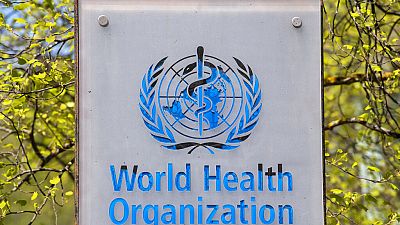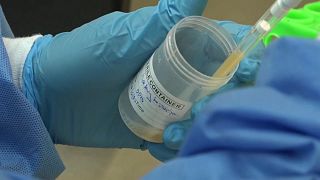Equatorial Guinea
The provisional toll of the Marburg virus disease epidemic that has been raging for more than two months in Equatorial Guinea stands at nine confirmed deaths, the Ministry of Health said on Thursday.
On Wednesday, the World Health Organization (WHO) called on Equatorial Guinea to report cases of the Marburg virus to it due to fears of more widespread contamination than announced.
On March 23, the WHO mentioned seven confirmed deaths and announced that it was aware of 20 cases "probably" caused by this hemorrhagic fever, all of whom died.
As of March 28, “nine deaths” have been “confirmed by the laboratory” since the start of the epidemic of this cousin virus of Ebola and almost as deadly as him.
“There have been 13 positive cases since the start of the epidemic, including two hospitalized with mild symptoms, one patient cured (…) and a total of 825 contacts have been followed”, detailed the Ministry of Health on Twitter.
The UN agency was alarmed by a potential "large-scale epidemic", which could affect Gabon and Cameroon in particular, neighbors of this Central African state. Cases have been identified outside the province of Kié-Ntem where it had caused the first known deaths on January 7, until reaching Bata, the economic capital of the country.
The WHO had announced the deployment of “additional experts” adding that it “is also helping Gabon and Cameroon to strengthen preparedness and response to the epidemic”. Tanzania also announced 9 days ago the start of an outbreak of Marburg, with five deaths.
This virus is transmitted to humans by fruit bats and spreads among humans through direct contact with the bodily fluids of infected people, or with surfaces and materials. The fatality rate can reach 88%.
There are no approved vaccines or antiviral treatments to treat the virus. However, supportive care - oral or intravenous rehydration - and treatment of specific symptoms increase the chances of survival.












Go to video
Zambia ends cholera outbreak after weeks without new infections
01:04
South Africa reports new bird flu outbreak on poultry farms
01:05
Study finds millions of children at risk as global vaccine rates fall
Go to video
Over 40 killed in attack on Sudanese hospital: WHO Chief condemns “Appalling” strike
Go to video
Ghana confirms 34 new Mpox cases, total rises to 79
01:07
WHO says the mpox outbreak remains a public health concern